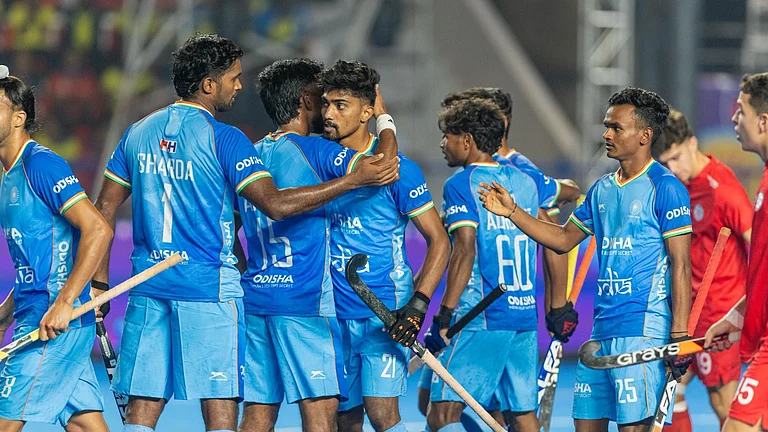Ram Diya, a farmer from Banga village in Sangrur district, is a typical example. On a landholding of 20 acres, he had taken Rs 2 lakh from the cooperative bank to "deepen" his tubewell (the water level had fallen) and Rs 4 lakh from a private shylock at 26 per cent annual interest. "I'm happy at the relief I'll get on my cooperative bank debt...but I've already defaulted on payments to the moneylender. Last time I defaulted, I had to sell off two acres of land to repay him. Now again he's taken my thumb impression on a blank paper and I am worried," he told Outlook.
Faced with a petition in the high court, Punjab chief minister Parkash Singh Badal had announced a couple of months ago that payments to farmers during procurement season would be through cheques and not routed through private moneylenders as has been common practice. But soon after, he diluted it by announcing that only 33 per cent would be paid through cheques. As BKU (Ekta) president Joginder Singh Ugrahan pointed out, "We welcome the relief to small and marginal farmers, but we are not prepared to settle for anything less than complete payments to farmers through cheques and a legislation to regulate the moneylenders."
While the focus for now is on the loan waiver, analysts like Pramod Kumar of the Chandigarh-based Institute of Development and Communications add a rider. They feel "it's a backward step for agriculture as there is no investment on productive growth strategies. Just a one-time dole...which is non-productive."


























